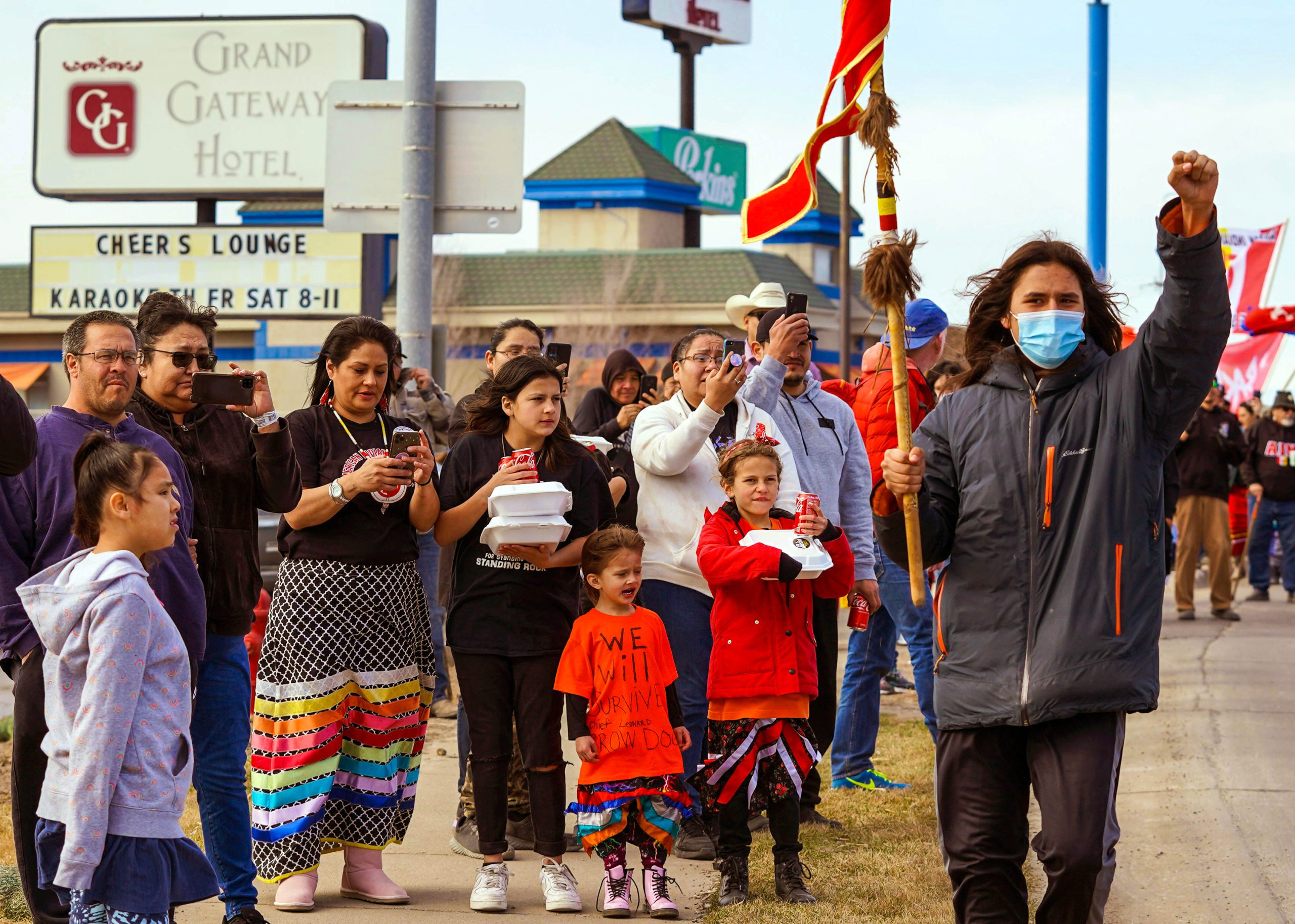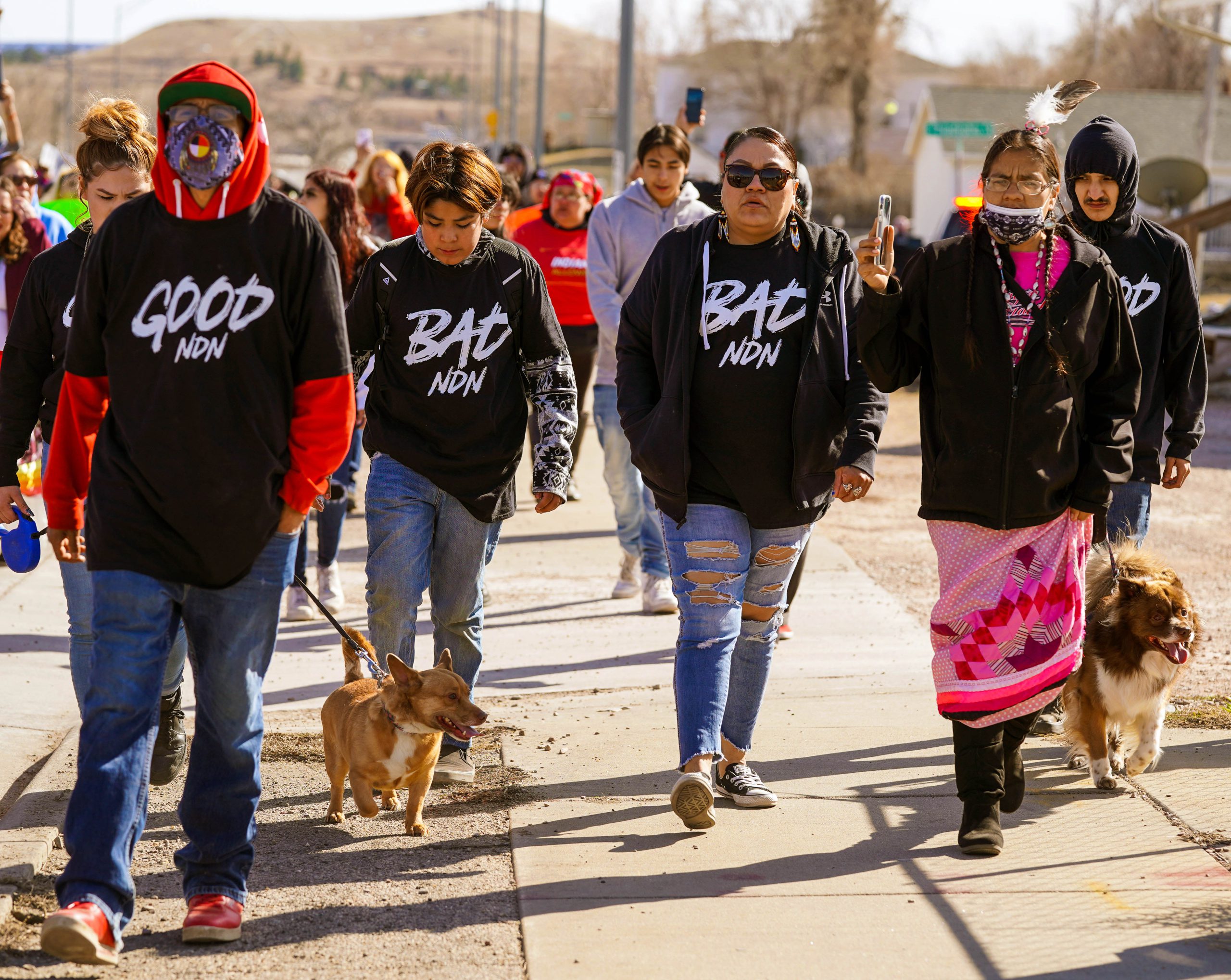Indianz.Com > News > ‘We just have to say no to them!!’: Business sued over racial discrimination against Native patrons
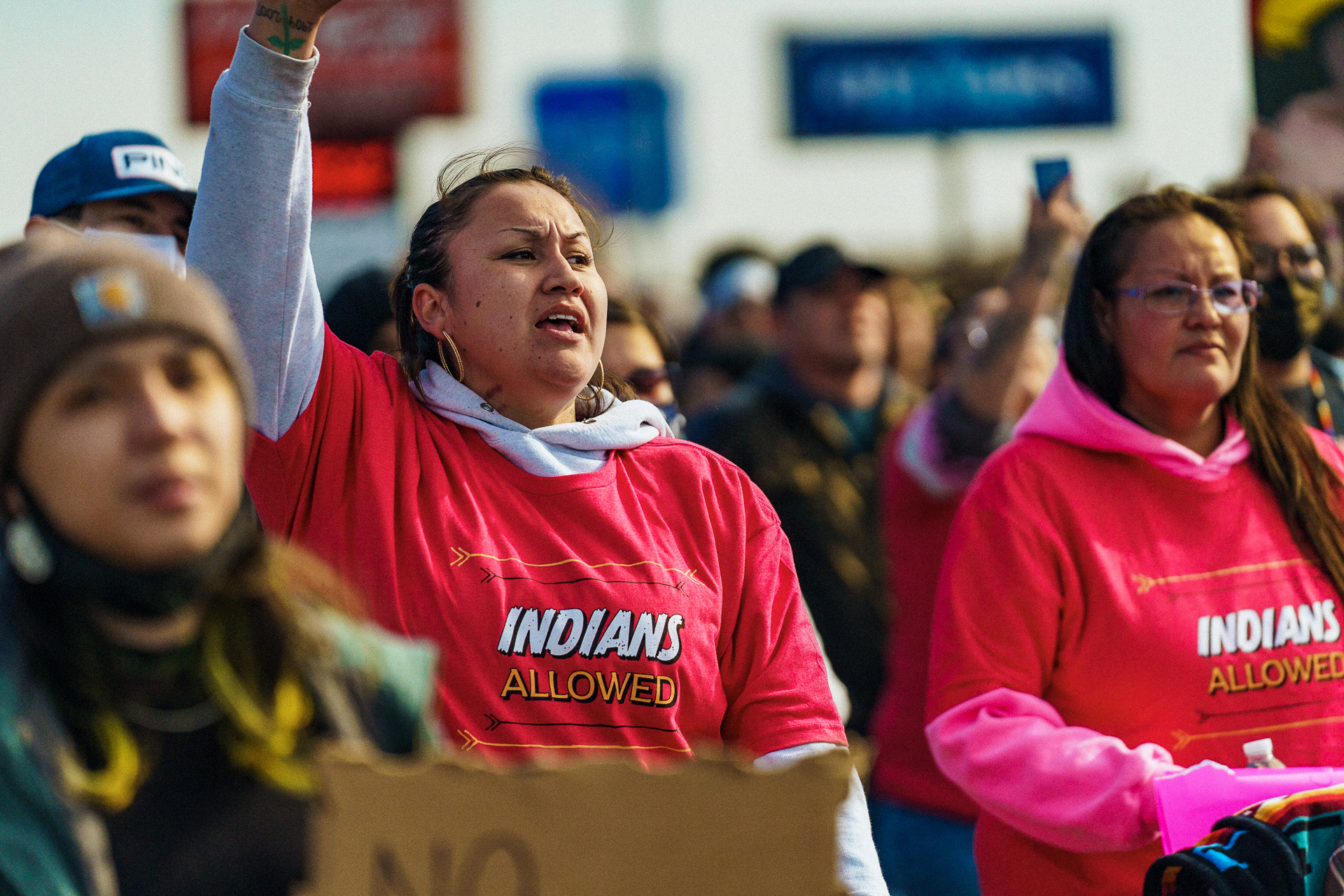
‘We just have to say no to them!!’
Business in South Dakota sued over racial discrimination against Native patrons
Wednesday, October 19, 2022
Indianz.Com
This is a developing story. The post will be updated as more information becomes available.
A business in South Dakota that barred Native patrons from renting hotel rooms is being sued by the United States government.
In a complaint filed in federal court on Wednesday, the Department of Justice accused the Grand Gateway Hotel and its owners of engaging in “racially discriminatory policies and practices” against Native people. The lawsuit stems from a widely publicized controversy earlier in 2022.
“Defendants Connie Uhre and Nicholas Uhre are responsible for devising, implementing, and instructing employees and agents to carry out the racially discriminatory policies and practices,” the seven-page complaint alleges of the owners of the hotel and an adjoining business known as Cheers Sports Lounge and Casino.
Complaint: U.S. v. Retsel Corporation
Connie Uhre, one of the business operators, implemented the policy against Native people in March. She said she didn’t want them patronizing the hotel or the lounge, characterizing them as engaging in criminal behavior.
“I really do not want to allow Natives on property,” Uhre said in an e-mail quoted in the complaint.
“The problem is we do not know the nice ones from the bad natives…so we just have to say no to them!!” she continued.
Uhre followed up with a public post on social media, confirming the discriminatory practice. She blamed her decision on “Natives killing Natives.”
“We will no long allow any Native Americans on property,” Uhre, who is one of the directors of the Retsel Corporation, the owner and operator of the hotel and lounge, wrote on March 20.
On the following day, a Native resident of Rapid City attempted to rent hotel rooms at the Grand Gateway. According to the complaint, Sunny Red Bear, who is Lakota from the Cheyenne River Sioux Tribe, was denied entry after an employee said “locals” weren’t allowed on the property. The employee further attributed the policy to Nicholas Uhre, another owner and operator of the business. Like his mother, Nick is named as a defendant in the lawsuit. A day later, on March 22, representatives of NDN Collective, where Red Bear is employed as Director of Racial Equity, attempted to rent rooms at the hotel and were again denied. This time, Nick showed up and asked if the five Native people were associated with the local organization. “When they responded that they were, Mr. Uhre demanded that they leave the hotel and then followed them out,” the complaint — which was submitted by U.S. Attorney General Merrick Garland, the leader of the Department of Justice (DOJ) — continues.In addition to blaming the mayor, police chief, sheriff, candidate for sheriff and the court system, a local hotel bans all Native Americans for a shooting a few days ago on hotel property. Neither the shooting or Grand Gateway’s response to it reflect our community values. pic.twitter.com/vA9oXND0qi
— Steve Allender (@Just_Allender) March 21, 2022
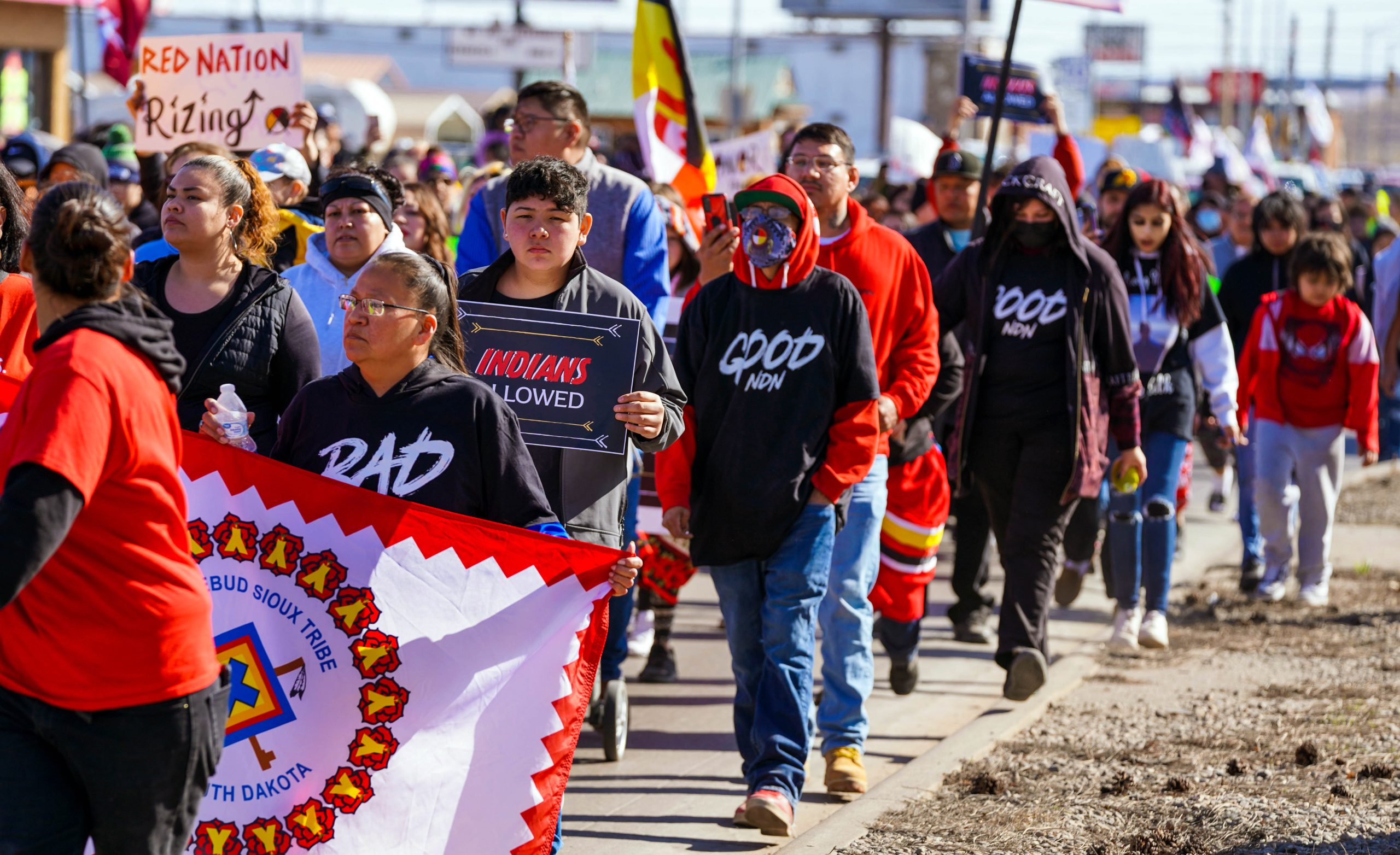
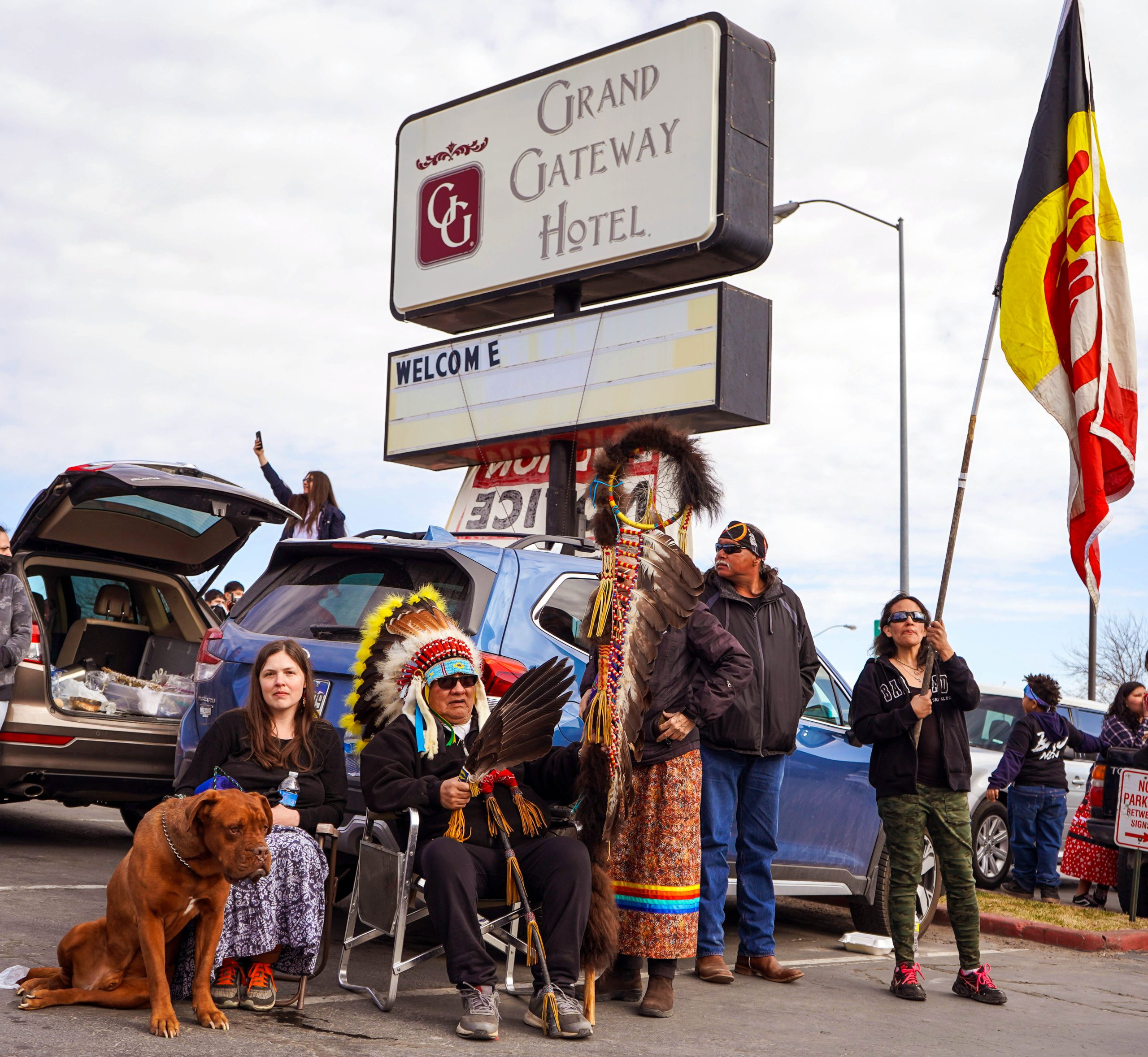

News Release: Department of Justice
Justice Department Files Lawsuit Challenging Policy Barring Native Americans From Accessing South Dakota Hotel and Sports Lounge
WASHINGTON – The Justice Department filed a lawsuit today (October 19, 2022) against the owners and operators of the Grand Gateway Hotel, and the Cheers Sports Lounge and Casino, a sports bar that operates within the hotel, located in Rapid City, South Dakota. The lawsuit alleges that the defendants discriminated against Native American customers in violation of Title II of the Civil Rights Act of 1964, which prohibits discrimination on the basis of race, color, religion or national origin in places of public accommodation, such as hotels and other places of entertainment. The suit is brought against the corporate owner, Retsel Corporation, and two of the company’s directors, Connie Uhre and her son, Nicholas Uhre.
“Policies prohibiting Native Americans from accessing public establishments are both racially discriminatory and unlawful,” said Assistant Attorney General Kristen Clarke of the Justice Department’s Civil Rights Division. “The Justice Department will continue to vigorously protect the rights of all people to go about their daily lives free from discrimination at hotels, restaurants, and other public accommodations around the country.”
“Restricting access to a hotel based on a person’s race is prohibited by federal law,” said U.S. Attorney Alison J. Ramsdell for the District of South Dakota. “At the U.S. Attorney’s Office, we are called to ensure that individuals are treated equally at public accommodations in South Dakota. We are committed to protecting that fundamental right for Native Americans.”
The lawsuit, filed today in the U.S. District Court for the District of South Dakota, alleges that, since at least March 20, the Retsel Corporation, Connie Uhre and Nicholas Uhre discriminated against Native American customers through policies and practices that denied Native Americans the full and equal enjoyment of access to the services, accommodations and privileges at the Grand Gateway Hotel and the Cheers Sports Lounge and Casino.
Specifically, the complaint alleges that on March 20, Connie Uhre told other Rapid City hotel owners and managers that she did “not want to allow Natives on property. . . . The problem is we do not know the nice ones from the bad natives…so we just have to say no to them!” That same day, the complaint alleges, Ms. Uhre posted a statement in a comment thread from her Facebook account announcing that “we will no longer allow any Native American [sic]” in the Grand Gateway or in the Cheers Sports Lounge and Casino. The complaint further alleges that on at least two occasions on March 21 and March 22, respectively, the defendants turned away Native Americans who sought to book a room in the Grand Gateway.
Under Title II, the Justice Department’s Civil Rights Division can obtain injunctive relief that changes policies and practices to remedy the discriminatory conduct. Title II does not authorize the division to obtain monetary damages for customers who are victims of discrimination.
More information about the Civil Rights Division and the laws it enforces is available at justice.gov/crt. Individuals may report discrimination in places of public accommodation that violates Title II by calling the Justice Department at 1-833-591-0291, or submitting a report online.
The complaint contains allegations of unlawful conduct, and the allegations must be proven in federal court.
Related Stories
Search
Filed Under
Tags
More Headlines
Native America Calling: Safeguards on Artificial Intelligence
NAFOA: 5 Things You Need to Know this Week
Chuck Hoskin: Cherokee Nation takes the lead for our environment
Native America Calling: Earth Day assessment for Native peoples
Cronkite News: Gathering addresses ‘epidemic’ among Native people
VIDEO: Cody Desautel on tribes and federal forest management
AUDIO: Legislative Hearing on Discussion Draft of Forest Management Bill
Native America Calling: Remembering the 1974 Navajo border town murders
Native America Calling: Can the right approach close the Native immunization gap?
Cronkite News: Long COVID cases remain high in Arizona
Native America Calling: Eyes in the sky for development, public safety, and recreation
Native America Calling: Three new films offer diverse views of Native life
NAFOA: 5 Things You Need to Know this Week
Chuck Hoskin: Cherokee Nation works toward cure for arthritis
Native America Calling: Protecting young people from the down sides of social media
More Headlines
NAFOA: 5 Things You Need to Know this Week
Chuck Hoskin: Cherokee Nation takes the lead for our environment
Native America Calling: Earth Day assessment for Native peoples
Cronkite News: Gathering addresses ‘epidemic’ among Native people
VIDEO: Cody Desautel on tribes and federal forest management
AUDIO: Legislative Hearing on Discussion Draft of Forest Management Bill
Native America Calling: Remembering the 1974 Navajo border town murders
Native America Calling: Can the right approach close the Native immunization gap?
Cronkite News: Long COVID cases remain high in Arizona
Native America Calling: Eyes in the sky for development, public safety, and recreation
Native America Calling: Three new films offer diverse views of Native life
NAFOA: 5 Things You Need to Know this Week
Chuck Hoskin: Cherokee Nation works toward cure for arthritis
Native America Calling: Protecting young people from the down sides of social media
More Headlines
